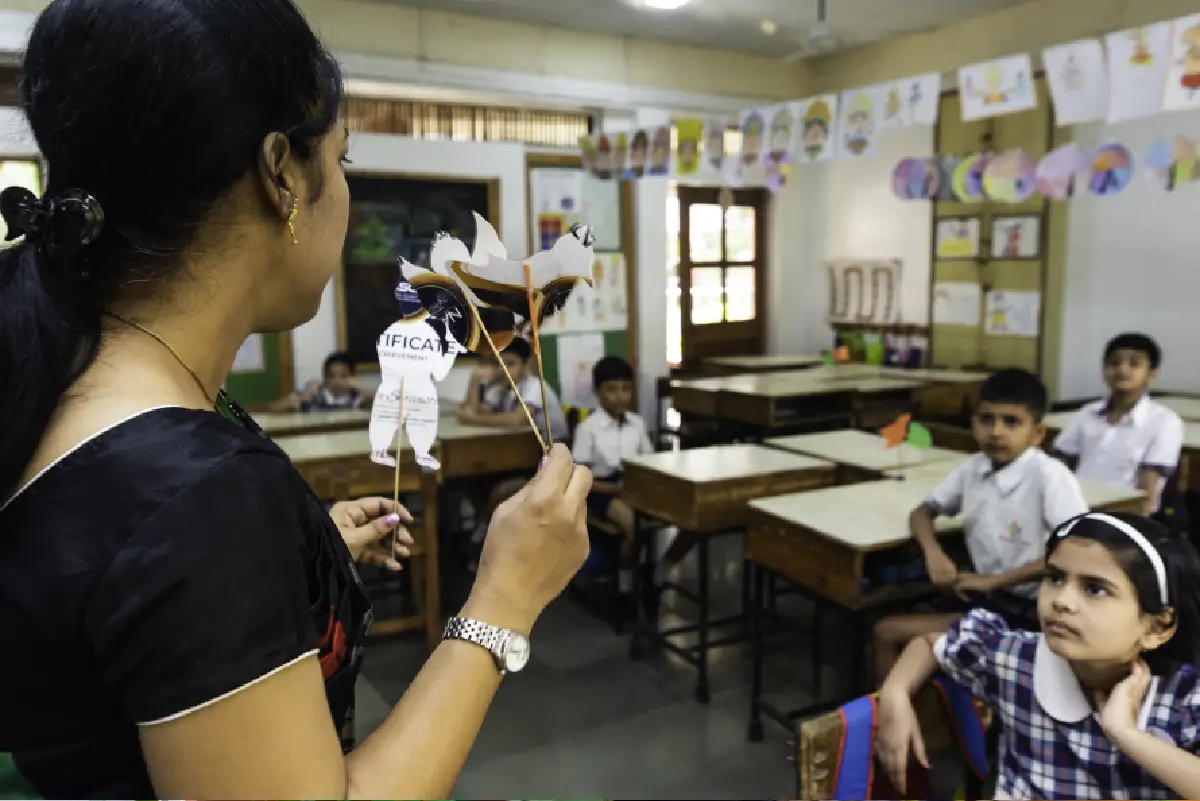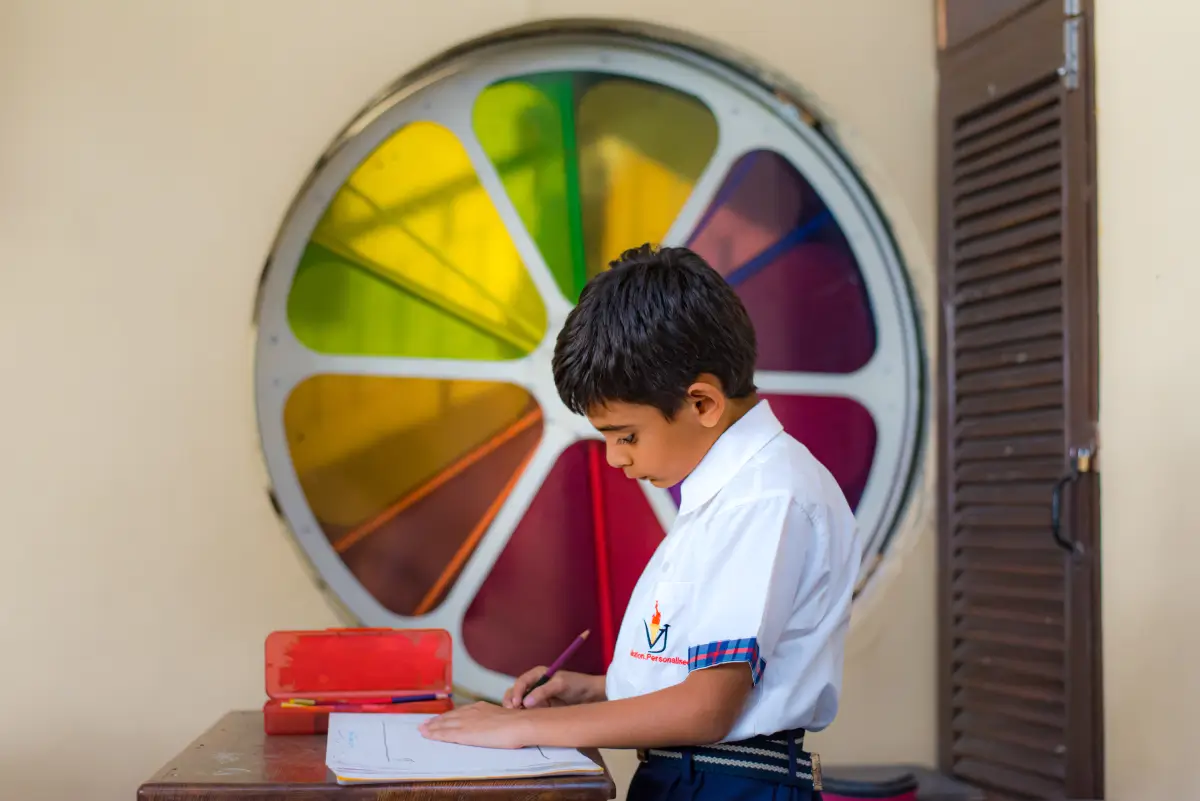We must rethink our approach to education in the rapidly changing global environment of today. Simply using traditional classes is insufficient today. Instead, we’re learning that the way to true enlightenment is to get our hands dirty and immerse ourselves in real-world experiences. We shall explore the transforming potential of experiential learning in this blog and explore the tremendous opportunities it offers.
What is Experiential Learning and Why It Matters
Experiential Learning Theory, as exemplified by Vishwajyot’s educational philosophy, elucidates that learning constitutes a continuous cycle encompassing experiences, reflection, cognitive processing, and subsequent action. Think of it as an ongoing loop wherein knowledge is gained from hands-on experiences. For instance, in Vishwajyot, students actively participate in practical activities such as music, drama, weaving and pottery, embodying the essence of experiential learning.
This mode of learning transcends the mere absorption of bare concepts through books and passive listening. Traditional learning is all about mere conceptual learning and theories – the kind of stuff you find in textbooks. But it’s not enough by itself. We need experiential learning, as fostered at Vishwajyot, with conceptual education to make it real.
Different Ways to Learn Through Experience
Experiential learning comes in different flavours.
- Active learning is about getting involved instead of sitting back. It makes you ask questions and dig deeper into what you’re learning. Active learning can also be thought of as discovering learning in action.
- Collaborative learning is when you work with others. Teamwork helps you learn more because you share ideas and see different sides of a topic. It’s like putting together a puzzle with friends. Collaborating learning can open doors to new perspectives and ideas.
- Project based learning is all about tackling big challenges. You dive into a problem and find solutions. It’s not just book smarts – it’s practical skills you can use in real life. Project based learning can be a gateway to extraordinary discoveries.
Hands-On Learning in Action
Activity based learning is like adding fun to the mix. You do cool stuff that connects to what you’re studying. It’s like making art to learn history – way more exciting! Activity-based learning encourages you to engage in experiential learning activities.
Problem based learning makes you a problem solver. You face real-world problems that need smart solutions. It’s not just learning – it’s doing something about it. Problem based learning can lead to innovative solutions and extraordinary learning experiences.
Experiential Learning Meets Constructivist Learning
The intersection of experiential learning and constructivist theories at Vishwajyot High School finds compelling support in our dedication to the arts. For instance, the practice of drawing and painting not only fosters artistic skills but also lays a solid foundation for intellectual growth, particularly in geometry and writing, as evidenced by our students’ achievements.
Moreover, art empowers our learners with confidence, as there is no strict right or wrong, fostering a constructive mindset. One notable example is wet-on-wet painting, a deeply calming activity for our students, doubling as a pathway to discovery. The beautiful paintings adorning the walls of our classrooms at Vishwajyot stand as a testament to the tangible knowledge and confidence our students gain through hands-on artistic experiences, firmly aligning with constructivist principles.
Discovering Learning Through Real-Life Experiments
With experiential learning, you learn that education isn’t just inside classrooms or books. It’s all around you, waiting for you to explore and understand. It’s about being curious and creative. This is how we find new things – by trying, asking, and testing. Experiential learning isn’t only for certain ages or levels of education. It works for everyone, from little kids to college students. When we let kids explore, get involved, work together, and solve real problems, we’re tapping into their natural curiosity and creativity. This is how we move forward and come up with new ideas.
Vishwajyot High School’s Special Touch
Discovering extraordinary things happens when we learn by doing real-life experiments. At Vishwajyot High School, we believe that experiential learning, where you actively make knowledge, not just absorb it, is key. For example, students here explore subjects through hands-on experiences like weaving and pottery. They actively use materials and processes, creating practical knowledge.
At Vishwajyot High School, we value experiential learning. We combine traditional learning with hands-on experiences. This reflects our philosophy. Our students do not just learn from books; they also take part in practical projects.
You can see this in our curriculum. Students design and build solar-powered cars. This shows that education isn’t just about books; it’s about real-world applications. This mix helps our students become leaders and thinkers. They develop a love for learning and a deeper understanding of why education matters.



